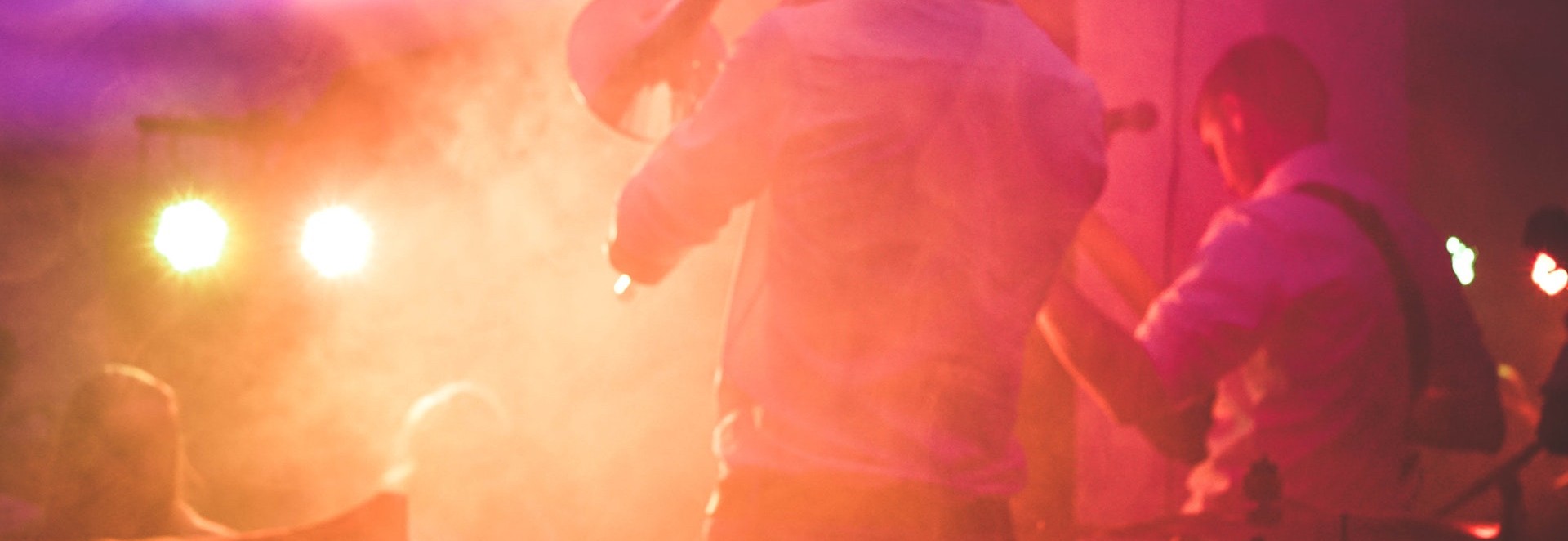Recently, given some stories of really half-assed performances that I’d heard, I wrote about your job as a live musician. We gigging musicians often get the short end of the stick in live situations. That post was meant to address the basic requirements you gotta do as a live musician. Now, let’s talk about what the venue ought to be doing.
Communicate with the musicians playing your venue
Communicating clearly with the bands and musicians playing your venue whether it’s a club, coffee shop, restaurant, art gallery, or anything else, buys you buckets of goodwill. And here’s the thing, you don’t have to overburden yourself with communications, just put together one email that answers all the questions — tells bands when to load in, when to soundcheck (if they get one), who their contact at the venue is, how long to play, how much they’ll be paid — and then send that same email to every band or musician you book.
If you don’t do this, you can guarantee you’ll find yourself answering the same questions over and over again. And you’ll find yourself blaming the bands who arrive late or play too long when you never set down what they were supposed to do.
If you communicate clearly and early, then you’ll get better behaved musical guests and generally promote a good vibe everywhere.
Have everything the musicians will need at hand
Musicians don’t need stages, subwoofers, and lights. We’re completely accustomed to playing on the floor in crappy fluorescent lighting with a small PA. Don’t worry that we’re high maintenance.
We do need: electricity (including extension cords and multi-taps), a working bathroom, a safe place to put our gear (and then our cases), probably some water.
A good way to figure out what else the musicians in your venue might need is to ask them. That will establish a better relationship with the musicians in your venue and get you a lot of respect. A lot of clubs don’t want to provide things like cables and cords because they’re afraid they’ll get ripped off. If you’ve established a respectful relationship with musicians, you’re less likely to get ripped off.
Promote the show
Again, it doesn’t have to be much to be meaningful. Just walking into a coffee shop that has a calendar of events on public display lets musicians know that you’ve told your audience about the show. In general, musicians don’t want to be a part of a show that no one (patrons, staff) knew was happening.
Even if you have an established night of music, put out a calendar or a flyer in the window. Name the bands playing on each night. Obviously, there are exceptions to this — like when you have an established entertainment night with a host. But so many times, local, gigging musicians have come to play a show at your venue because they are patrons or they know patrons. We want to play in places where people who are likely to like us will be. So if you put up a calendar or flyer with our names on it, then those people we know who frequent your establishment are more likely to return on that night.
Post about all your shows on your social media. Instagram isn’t just for pictures of your latte art. Add flyers for the shows in your venue there.
In general, have a little strategy to your musical endeavors. It can be like the email you send to musicians with the logistics — a template you re-use for every show:
- email to musicians with show details
- flyer in window
- update to chalkboard calendar with bands names
- Facebook post about the show
- Instagram the day of the show
- Tweet the day of the show
Pay musicians playing your venue
As shocked as I am when I hear stories of musicians treating gigs poorly, I’m far more shocked when venues treat musicians poorly and then act like those musicians should have acted better.
Do you know how to make everyone involved treat a gig with more respect? Pay the musicians.
You’re asking for the time, effort, energy, and creativity of a person or group of people in a very stressful situation. That is not a request that should be treated like an exchange for “exposure.” And if you’re charging at the door, you absolutely have to split that with the bands.
When musicians see a venue promoting their show and offering to pay, they will treat it far more seriously and do more promotion of their own. It results in a mutually beneficial relationship.
Musicians and venues are a community. If you don’t treat the other well, they’ll tell other members of your same community.
A small, local venue can’t always pay a guarantee to a band. But a venue can get creative. It can be a small, flat fee that offers a bonus if more than a certain number of people show up. It can be everything taken at the door minus a charge for the sound engineer (if you got one) because the venue gets the bar. It can be the first $100 of food and drink sales that night.
What’s most important is that you communicate to the band up front (when they book the show) how you pay.
Fire the musicians if they aren’t satisfactory
Here’s the huge benefit of paying musicians: it’s a job. If those musicians do their job poorly, if they arrive exceedingly late, if they are unprepared, if they steal your cords and cables, fire them.
In most cases (except theft or destruction of property), you should still pay them as contracted. But if you have a band booked for a residence and that band clearly doesn’t prepare for their gigs, fire them. That’s their job and they didn’t take it seriously. You’re totally within your rights.
This is all a benefit of paying bands (anything). When you pay, not only do you encourage mutual respect, but you have an incentive to withdraw against a continued relationship. When a band knows that you pay, that you communicate, that you provided what’s needed, they will want to play your establishment again. So they will want to do a good job in order to get paid again in the future.
And if they don’t do their job well, don’t hire them again.
If you want more ideas…
I wrote about how venues can help create a musical culture here:
And I wrote about little changes venues can make for a greater return on live music here:












































Pingback: Your job as a live venue – Black Lotus